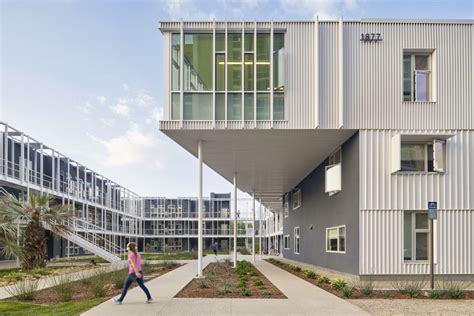Nelson Partners specializes in developing, acquiring, and managing quality purpose-built student housing assets. With an experienced team of professionals with a proven track record in the student housing sector, Nelson Partners is focused on developing high-quality properties in top-tier university markets across North America. Its mission is to provide rental housing that enhances the educational experience for students and improves their quality of life.
Overall Strategy
Nelson Partners’ overall strategy is to acquire and develop top-tier student housing properties that meet the unique needs of students within various higher education settings. Nelson Partners is particularly focused on acquiring existing properties in need of physical improvements and existing development sites with entitlement capacity.
As in any industry, student housing is not without its challenges. Enrollment growth continues to spread across the country, with supply failing to keep pace. University budgets are also under stress as many states have taken measures to reduce appropriations for public universities over the past several years.
However, Nelson Partners believes that these challenges present opportunities for investors who are willing and able to make the necessary commitments to meet this demand. As a result, the company has developed a disciplined investment process designed to generate superior risk-adjusted returns for its investors while meeting the unique needs of students across various higher education settings.
Developing New Student Housing Projects
Nelson Partners works with local architects and national consultants who specialize in student housing to develop student housing projects to ensure the final product is of the highest quality. This includes designing amenities that appeal to students, planning for maximum efficiencies, and focusing on sustainable building practices.
To create appropriately scaled spaces for living rooms, bedrooms, bathrooms, kitchens, etc., Nelson Partners uses sophisticated data modeling techniques that account for individual unit-level and campus-level demographics. The company then works with an advisory board of students to finalize design plans, further ensuring that the project will meet the needs of its future residents.
Unique Issues in Student Housing
Nelson Partners believes that there are several unique issues and challenges within the student housing industry.
First, the nature of the students themselves varies from project to project; they can range from traditional “first-time” college students (18-24 years old) to older non-traditional students (25+). Each age group has unique needs, which means student housing managers must provide the appropriate amenities and services.
Second, many of these projects are near college campuses or other public transportation hubs, limiting vehicular access. This naturally lends itself to having a higher concentration of retail establishments within walking distance. However, there is demand for more residential amenities, particularly when the student population is smaller. As a result, Nelson Partners has prioritized including additional amenities within its projects (e.g., convenience stores).
Third, most of these facilities are not owned by the universities; they are privately owned and operated by independent companies. This means that there is currently no standardization of amenities and services across properties, although there is a significant focus on improving the student experience.
High-Quality Assets with High Occupancy Rates
Nelson Partners has acquired several properties in the past decade, all located within top-tier university markets: Austin (University of Texas), Chicago (the University of Illinois at Urbana-Champaign), Columbus (Ohio State University), and Madison (University of Wisconsin). These locations continue to have high occupancy rates, largely because there is not enough supply in any area to support the number of students who need housing.
In addition, Nelson Partners has many other projects in various stages of development across different major cities.


 9 Important Nutrients for a Woman’s Health with DavidPaul Doyle Naturewise
9 Important Nutrients for a Woman’s Health with DavidPaul Doyle Naturewise